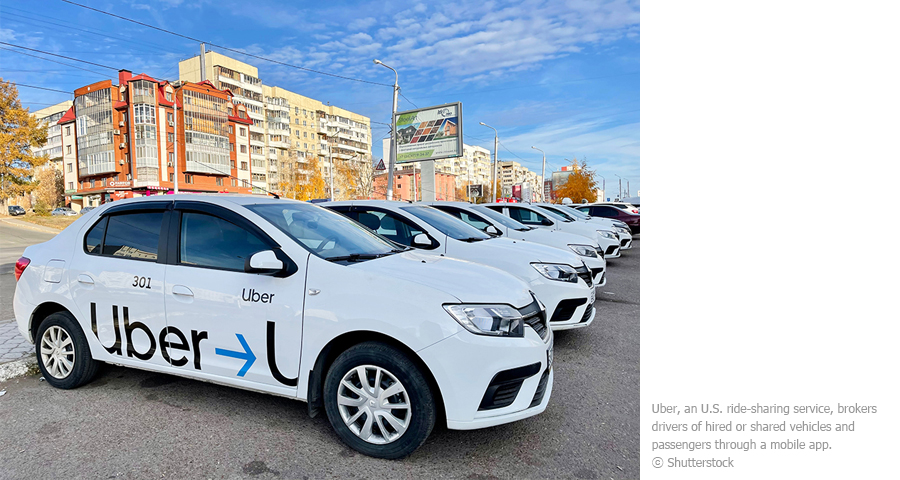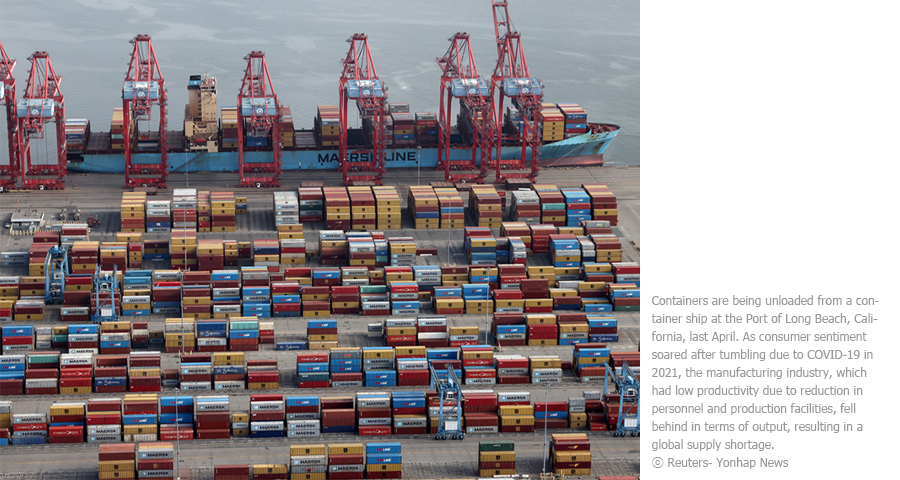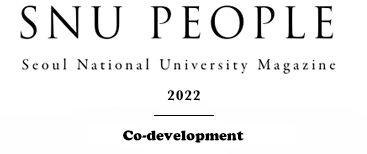Interview
Co-development between Industries
to be Achieved through Healthy Competition
Kyungmook Lee, Professor at College of Business Administration

The prolonged COVID-19 pandemic, which began at the beginning of the Fourth Industrial Revolution, has changed many aspects of our lives while also bringing about rapid changes in the industrial scene. While online and platform companies have undergone rapid growth, traditional manufacturing companies and small business owners have been hit hard, and both opportunities and conflict factors are increasing due to industrial restructuring based on the transition to a digital economy. Is a win-win relationship between industries necessary for overcoming the crisis situation in the post-COVID-19 environment and preparing for a new leap forward? We met with Professor Kyungmook Lee from the Department of Business Administration, who has been exploring the corporate culture in South Korea.
Q1.
Professor Lee, what is the biggest change in the industrial environment before and after the COVID-19 pandemic?
I could pick out many events, including the shift to working from home and the growth of platform companies. However, the biggest change would be that it triggered the diversification of the global supply chain. Prior to the COVID-19 pandemic, companies selected regions with low wages and taxes, mainly China and other Asian countries, as their production bases and managed their supply chains to cut costs. This was thanks to globalization with lowered trade barriers between countries and efficient logistics management according to technological advances. However, as lockdowns continue around the world due to the COVID-19 pandemic, raw materials or parts necessary for product production cannot distributed on schedule. South Korea also suffered from a shortage of urea water solution last year, as China stopped exporting urea to handle its coal supply shortage. The trend of distributing supply chains around the world will continue in the future, and South Korea, which is a manufacturing powerhouse, needs supply chain management that fits our needs.

Q2.
As demand for contact-free services is soaring, conflicts between the existing economic system and new platform-based industries are also continuing.
The so-called вҖңTadaвҖқ case in 2019 can be cited as a representative example. Although this service had been popular among young people, who were dissatisfied with ride refusals, exorbitant fares, and unfriendly service in the existing taxi service, protests from the taxi industry eventually forced Tada to terminate some of its services. It thus may not be ideal to promote the win-win relationship of a new industry and an existing industry that could be harmed by the new one. Because they are in a competitive relationship, rather than a win-win relationship, it is impossible to compromise and reach an agreement between the players of competition. In this case, the government should facilitate keen competition between these two industries instead of regulating either party. For example, in the case of taxis, the size and price of vehicles are regulated according to domestic laws and regulations. If the service could be provided at the same level as Tada, allowing the vehicle sizes to be varied and the fares to be set by the agreement of providers in local municipalities, there could have been fair competition.
Q3.
What is the role of the government as an intermediary being that there are opinions that premature regulation impedes the development of the quaternary industry?
Growth and distribution are the key policy values in contemporary society. The government must make both areas compatible to improve society. However, because no innovation would occur if economic policy focused only on redistribution, these areas need separate consideration. For example, in the Tada case I previously mentioned, the issue of the right to survival for existing taxi operators lies in the area of distribution. As I described, the government may be able to allow existing taxi operators to compete with Tada by loosening the regulations, or it could compensate operators that are kicked out of the competition with welfare benefit plans. In the United States, after the launch of Uber, a ride-sharing service, taxi companies in metropolitan cities and Uber became connected to survive together. Moreover, existing accommodation companies are actively utilizing Airbnb, an accommodation sharing service, as a channel to attract customers. Of course, the rise of platform businesses can lead to monopolization due to the network effect*, so monitoring is required. Supportive policies should be implemented by providing promotion measures that will generate innovation in a business-friendly environment and simultaneously upgrading the system to avoid the resulting side effects. In this manner, consumers can enjoy better service, and the companies can foster their competitiveness.
Q4.
The polarization between large corporations and small and medium-sized enterprises (SMEs) has been worsening, and this is an urgent issue that needs to be resolved.
There is a marked tendency of viewing large corporations and partner companies, which are SMEs, as being in an exploitative relationship in South Korea. Despite the many voices demanding regulation of large enterprises for a win-win relationship, that regulation can prevent SMEs from growing. Sixty percent or more domestic SMEs have direct or indirect subcontracting relationships with large companies, and most of their sales are made by large corporations. SMEs inevitably become complacent with the current situation, as most of their final goods are destined to be sold, and thus become reluctant to independently generate profits to become self-sustainable. The public procurement market thus hampers market competitiveness, contrary to the notion that вҖңthe government helps SMEs grow by purchasing their excellent products.вҖқ This is because the gap between SMEs and large corporations will widen if SMEs do not increase the quality of their products and make profits through reduced costs.

Q5.
What is required for a co-development between large corporations and SMEs, then?
Regulatory reform must proceed, and market competition should be facilitated, as previously mentioned. The demands of major contractors or large corporations to lower unit prices, shorten delivery times, and improve quality are unavoidable in that the corporations need to win over other competitors by responding to the interests of consumers, who ultimately purchase goods. Unexpectedly, continued business with SMEs that are less competitive would result in damage to other competitive companies. The government should change their regulations from п»ҝpositive* to negative* to foster active competition and tighten the conditions for the public procurement market to entice SMEs to become more competitive. Simultaneously, it needs to monitor unfair practices, such as irrational business methods, one-way transactions, and technology theft from business partners through the system.
Q6.
What advice would you like to offer to the students facing the post-pandemic era?
As the cold wave due to the COVID-19 pandemic continues in job market, students who are about to leave college will be more concerned with acquiring a job. However, new opportunities are also emerging, as the world is shifting incredibly fast. I hope that they will be able to grow as talents who pioneer their futures and contribute to the world by making the most of their own ideas at this opportune time.
* Network effect:
The network effect occurs when the quantity demanded by a consumer for a particular good is influenced by the demand of others. As more and more consumers flock to a product or service, the number of consumers of that product or service continues to rise. As such, the number of consumers using a product or service is more important than the quality of the product or service.
* Positive regulations: a type of regulation in which what is permitted by laws and policies is enumerated, and other matters are prohibited.
* Negative Regulations: a type of regulation in which anything is permitted unless prohibited by law or policies.

